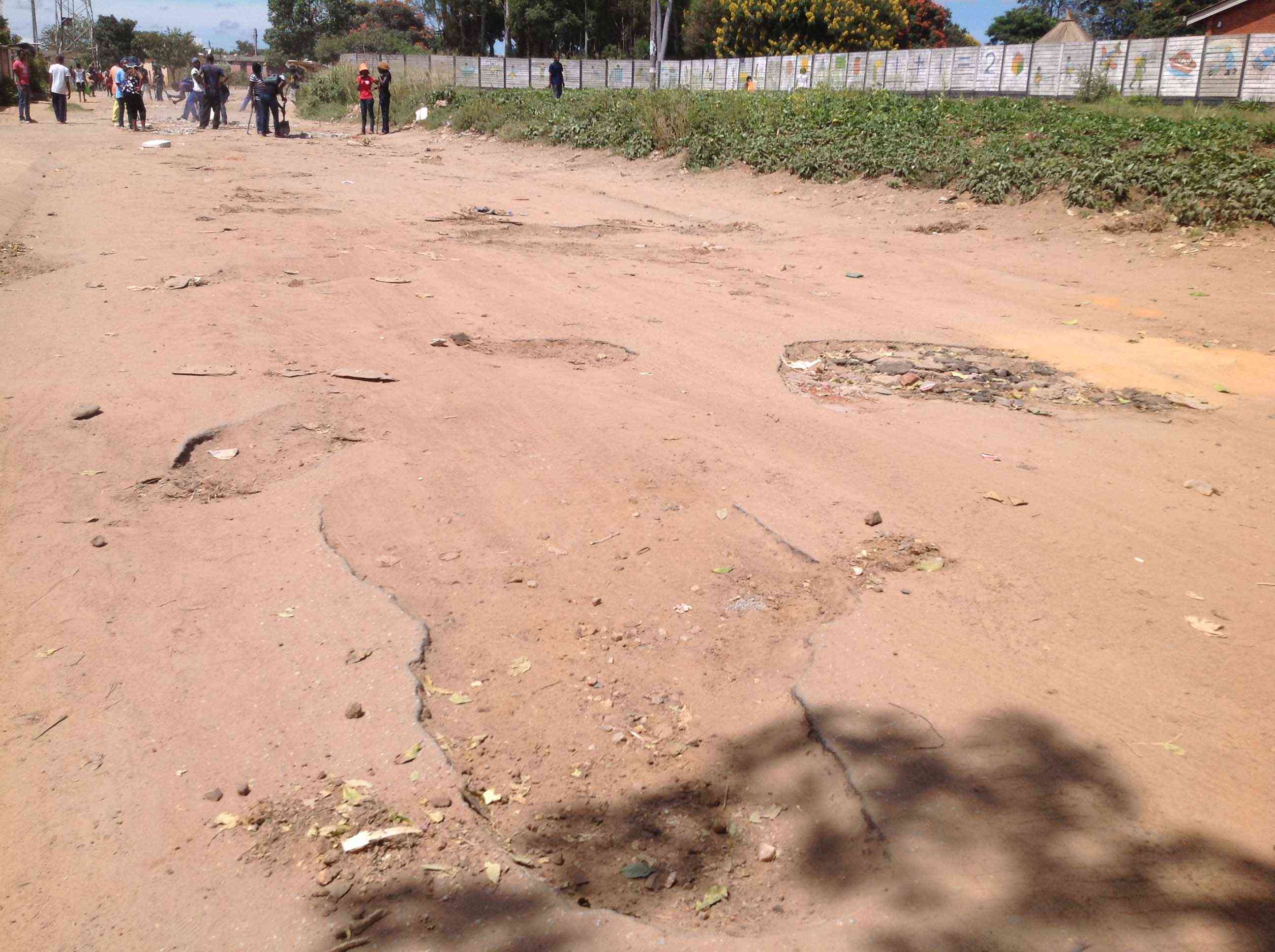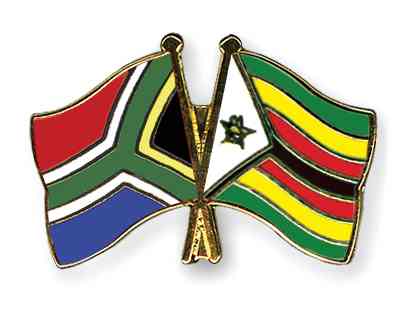
ON the dusty streets of Mabvuku, Tafara and Caledonia, once-vibrant neighbourhoods but now experiencing a patchwork of potholes and crumbling infrastructure, residents, weighed down by the relentless challenges of economic instability and climate-induced shocks, find themselves in a constant battle to access the most basic of services.
Yet, amid the seemingly bleak landscape, a quiet revolution is unfolding — one driven by the unwavering resilience and collective problem-solving of the communities themselves.
From road improvisation, offering makeshift basic services, voluntary neighbourhood policing to counter rising crime, rehabilitation of homesteads once-used as substance and drug abuse hideouts to establishing grassroots initiatives ensuring access to water, electricity and healthcare.
Urban and peri-urban dwellers are emerging as the true lifeline of their embattled neighbourhoods.
“It’s a daily struggle, navigating these untrafficable roads and dealing with the constant shortages of basic services,” sighs Vissencio Maganizo, an artist and ward development committee member in ward 20.
“But we refuse to let these challenges define us. Instead, we’re coming together to find solutions that work for our communities.”
Maganizo’s sentiment echoes across the three communities, where residents have banded together to tackle their most pressing issues.
Armed with shovels, wheelbarrows and a determined spirit, these urban road warriors have managed to restore some semblance of accessibility, ensuring essential services and supplies reach even the most isolated corners of the neighbourhood.
- Cricket hero Raza draws inspiration from fighter-pilot background
- Trafigura seeks control of Zim metals over debts
- Cricket hero Raza draws inspiration from fighter-pilot background
- Caledonia profits up 16% after record production
Keep Reading
“It’s backbreaking work, but we have no choice,” says Nyarai from Gazebo, a mother of four who has been actively involved in the road repair initiative.
“The authorities have let us down, so we have to do what we can to keep our community moving.
“It’s about more than just getting from point A to B — it’s about preserving our sense of unity and self-reliance”, she proudly says.
The community-driven approach extends beyond infrastructure, as residents address the persistent shortage of water.
In Caledonia, a group of young entrepreneurs has established a decentralised water distribution network, utilising solar-powered boreholes and creative delivery methods to ensure every household has access to this vital resource.
“We couldn’t just sit back and wait for the authorities to fix this problem,” explains Kudakwashe, pushing a cart laden with water containers for delivery.
“So, we decided to take matters into our own hands and create a community-based solution that works for us but for a small fee,” he chuckles.
In neighbouring Old Tafara, a seemingly well-organised water kiosk is helping about 2 000 households despite occasional break downs.
From time to time, the community works closely with its local district office to technically revive it.
“This asset has become quite critical for our neighbourhood but its constant breaking down is becoming irritating,” said a local resident who only identified himself as Nyakupfuka.
A distance away in the same neighbourhood, six enthusiastic builders are busy reconstructing a house once used as a substance and drug abuse hideout by a local drug queen who fanatically enticed idle adolescents and youths.
“This is now the third house we have managed to renovate and rehabilitate modestly with the help of touched bread-winners in the diaspora supported by passionate community members,” one of the builders said.
Alongside the heavily potholed Gazebo-Eastview highway, side-names for Caledonia, lined with makeshift stalls, containers, huge and small, and the hum of generators powering small businesses, a new breed of entrepreneurs is emerging, determined to rewrite the narrative of their community.
Welcome to a small industrial hub and market-place they call “Chimbare Mbare”, seemingly borrowed from the higgledy-piggledy popular Mbare Musika.
Meet “Hosh Kosh”(44), a young father of three who has refused to let the grim realities of Zimbabwe’s economic landscape extinguish his entrepreneurial spirit.
Long after losing his job at Lafarge, now the corporate-rescued Khayah, he could have easily succumbed to despair.
Instead, he channelled his creativity and resourcefulness into starting a thriving business selling homemade peanut butter and jam from a small roadside kiosk.
“When the cement factory briefly closed down, I knew I had to find a way to support my family,” Hosh Kosh recounts, his eyes sparkling with determination.
“I may not have a lot of capital, but I have the passion and the drive to make this work.
“This community has been my home for as long as I can remember and I’m not going to let it down.”
Similarly, 5km away in Mabvuku, residents have pooled resources to set up small-scale, off-grid power grids, utilising solar panels and battery storage systems to provide reliable electricity to households and local businesses next to Kamunhu shopping centre.
This innovative approach not only addresses the chronic power outages but also fosters a sense of self-reliance and community empowerment.
“When the grid fails us, we can’t just give up and accept the darkness,” quipped Yeukai (32), a young entrepreneur involved in the solar power project.
“We have to find a way to keep the lights on and the businesses running. It’s about more than just individual survival — it’s about the survival of our entire small business community.”
The Poverty Reduction Forum Trust has noted that community entrepreneurs share a common thread by harnessing skills, creativity and unwavering determination, breathing new life into their neighbourhoods.
At Gazebo, Tafara FHS, Mabvuku Poly and Old Mabvuku Satellite Clinics, access to healthcare has been a challenge for some time.
The health facilities are now a network of volunteer-run, staffed by nurse aids, retired nurses and few medical students, providing essential services and medication to those in need, filling the void left by the overburdened and underfunded public health system.
“We may not have all the resources or expertise of a traditional hospital or clinic, but we have something just as valuable, the unwavering commitment of our community,” says Silas Tarava, a community health advocate, living in the Gazebo area, in a recent interview.
“When you see the relief and gratitude in the eyes of those we’ve helped, it’s all the motivation we need to keep going,” he says enthusiastically.
Economic experts note that home-grown solutions strengthening small businesses and supply of basic services are fundamental to generating domestic employment and producing strong local economies.
As the sun sets on these resilient communities, the sound of hammers, shovels and generators, echo throughout the streets and the neighbourhoods, a symphony of collective action and determination.
“We may be facing incredible odds, but we refuse to be defined by them,” Maganizo declares.
“This is our home and we’re going to fight for it — one pothole fixed, one water pump installed, vibrant small industrial markets, solar panels here, solar panels there, one at a time; when we come together, there’s hardly anything we cannot accomplish.”
With the communities on the brink, the true strength lies not in the promises of the politicians, but in the unyielding spirit of the communities themselves — a testament to the power of grassroots solutions and the transformative potential of collective action.










